URGENT need for an International Fossil Fuel Non-Expansion Treaty
URGENT need for an International Fossil Fuel Non-Expansion Treaty.
ORCA Sci-comm Team I 15th December 2023.
COP28 has just wrapped up, and it's being hailed as a landmark event for its initial acknowledgment of the need to shift away from fossil fuels. However, the level of ambition behind this acknowledgment is up for debate. Let's take a more in-depth look:
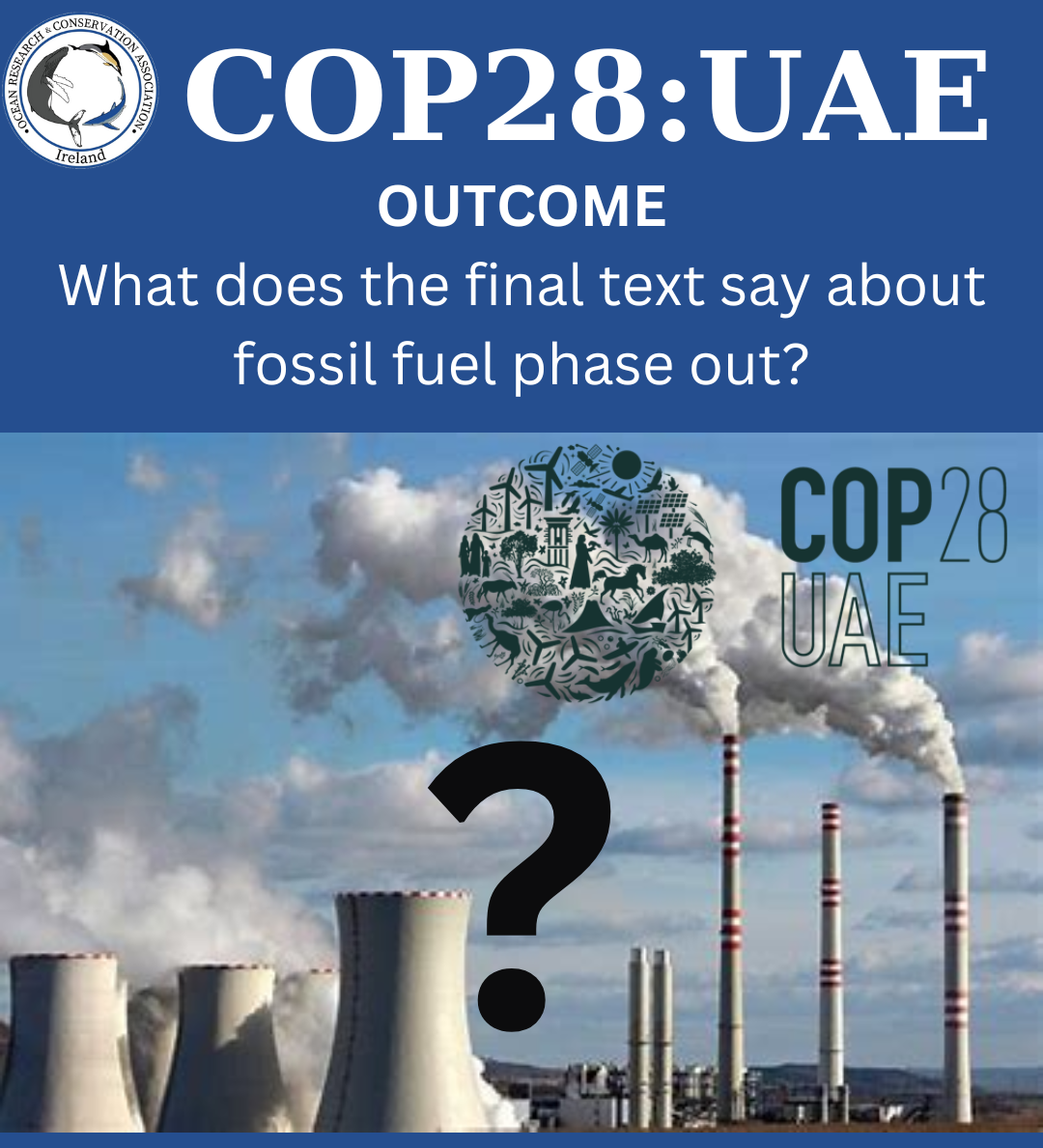
While some positive outcomes were achieved at COP28 in the UAE this year, such as the statement on "the need to transition away from fossil fuels" being mentioned in the final text for the first time, and this transition needs to be "fair and financed", in line with the need to limit global warming to 1.5 degrees Celsius, and nationals now being required to report on this transition, several pitfalls have been highlighted.
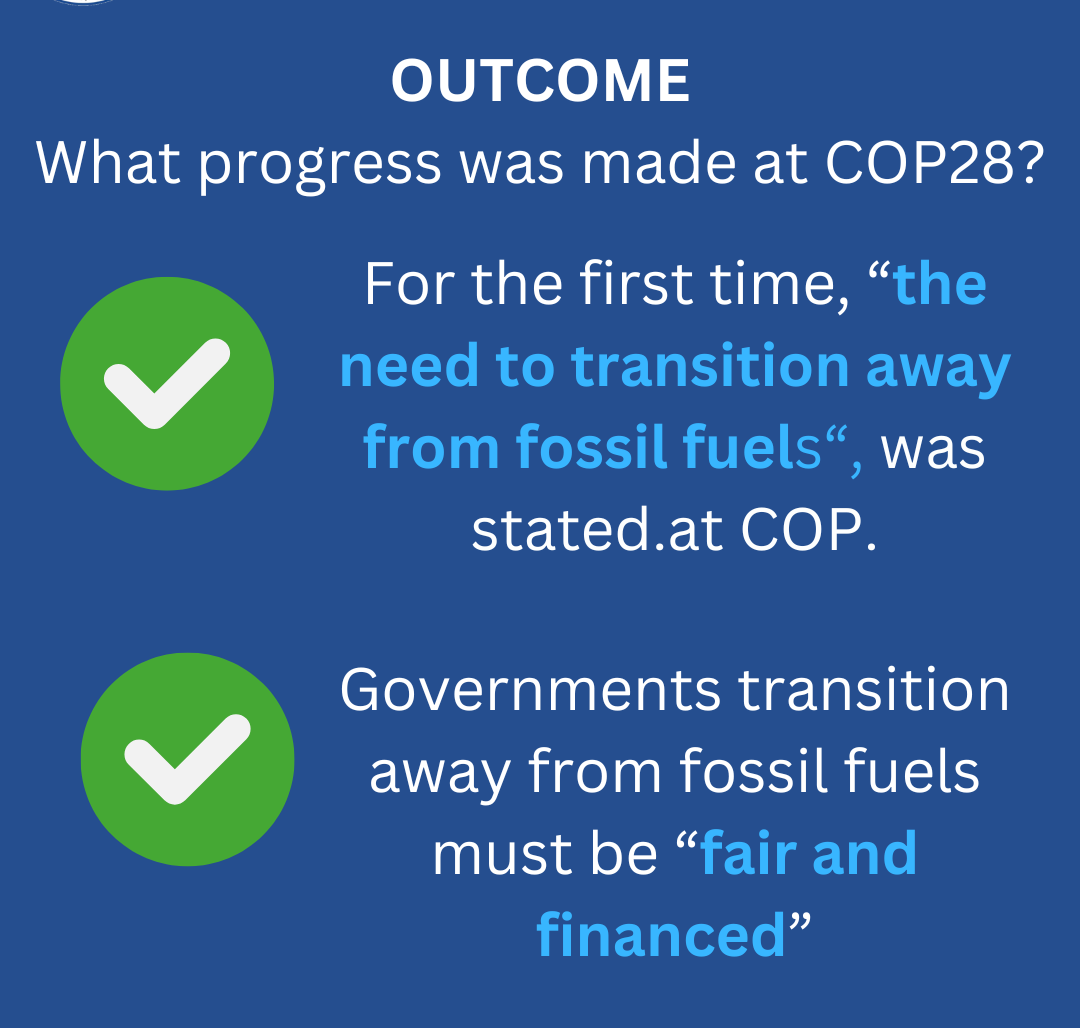
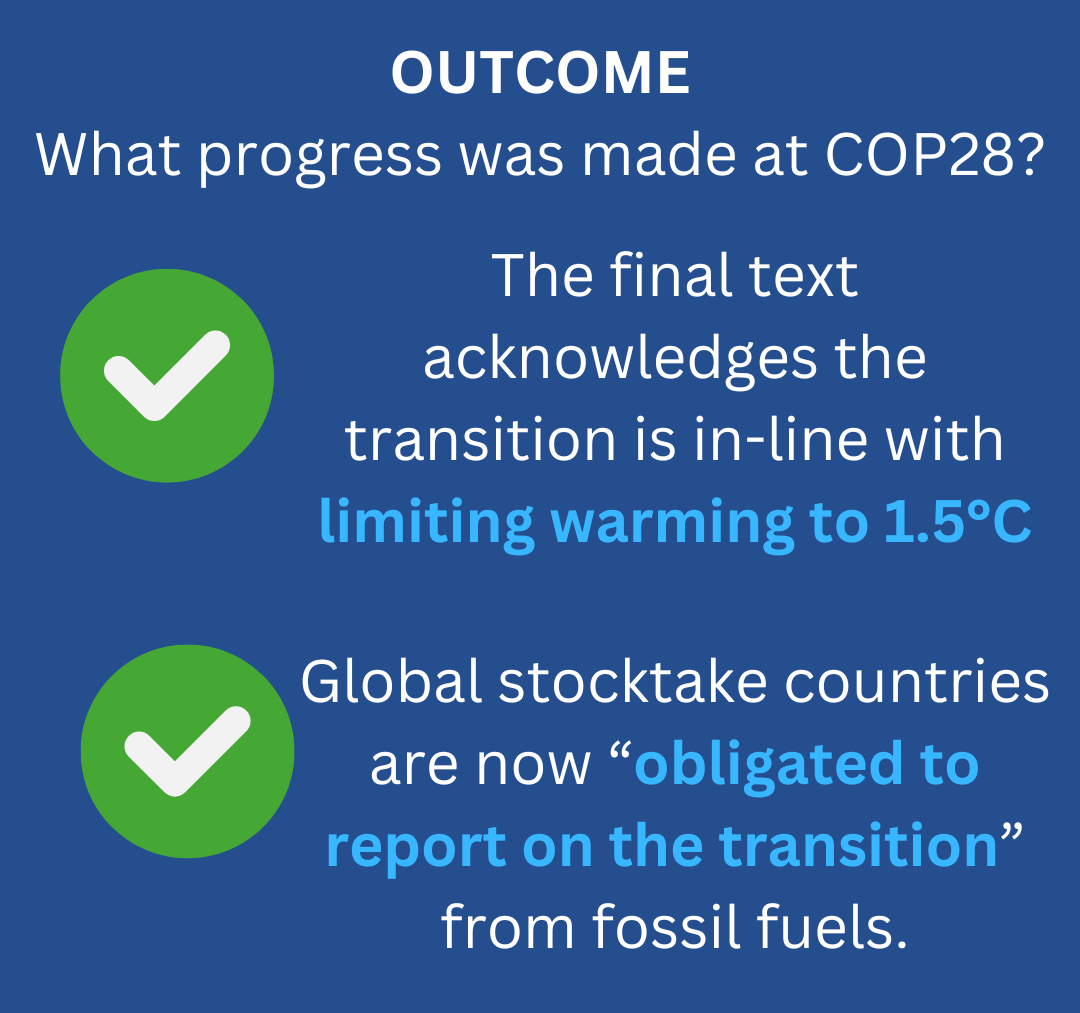
Incomplete Commitment with Substantial Loopholes
While the agreement does refer to fossil fuels, this mention is heavily diluted by numerous conditions and exceptions that seem to leave room for the continued expansion of coal, oil, and gas projects.
Lack of Financial Support Hinders Fossil Fuel Phase-Out
A major stumbling block is the absence of financial mechanisms. Without economic assistance from wealthier countries, developing nations reliant on fossil fuels for basic needs and economic stability can't realistically transition away from them.
Equity and Justice are Missing
The agreement fails to address the issue of equity. A fair and feasible transition requires wealthier countries, which have the means to switch more rapidly, to take the lead. This would allow less affluent nations a more gradual shift, although time is limited due to the shrinking carbon budget.
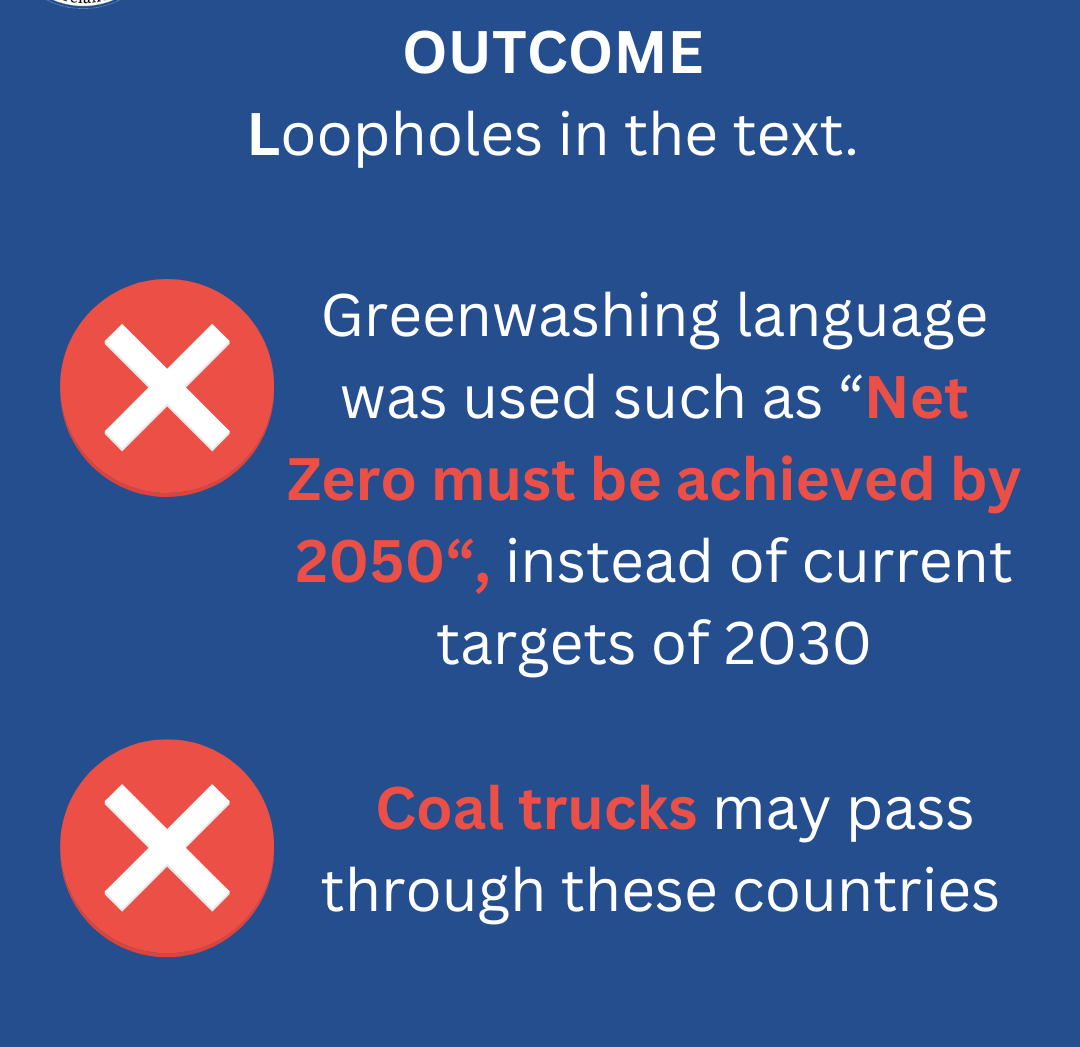
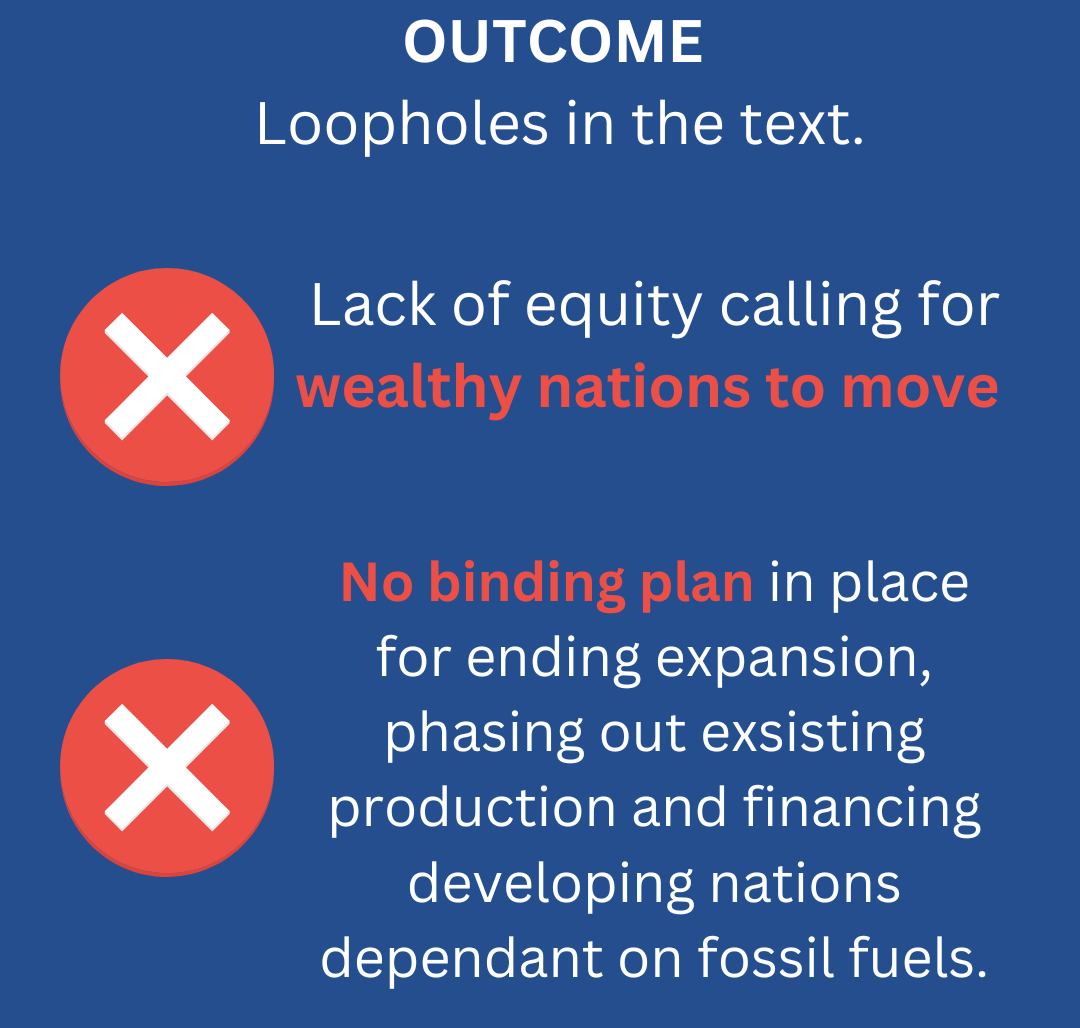
Lack of Binding Commitments
Mere acknowledgment of fossil fuels isn't enough. There needs to be a concrete, binding strategy for their phase-out, including halting new projects, winding down existing ones, and financing a just global transition.
Endorsement of Questionable Solutions
The COP text includes a notable number of 'false solutions', mirroring strategies often promoted by the fossil fuel industry. These include advocating for 'transition fuels' like natural gas, as well as carbon capture, storage, nuclear energy, 'low-emission fuels', and other methods that the industry uses to justify continued fossil fuel use and delay decisive action.
Slow Pace and Unclear Goals
The agreement's commitment to 'net zero by 2050' falls short of aligning with the 1.5ºC target. This approach allows for questionable accounting practices, reliance on offsets, and interim solutions, while not adequately curtailing current expansions.
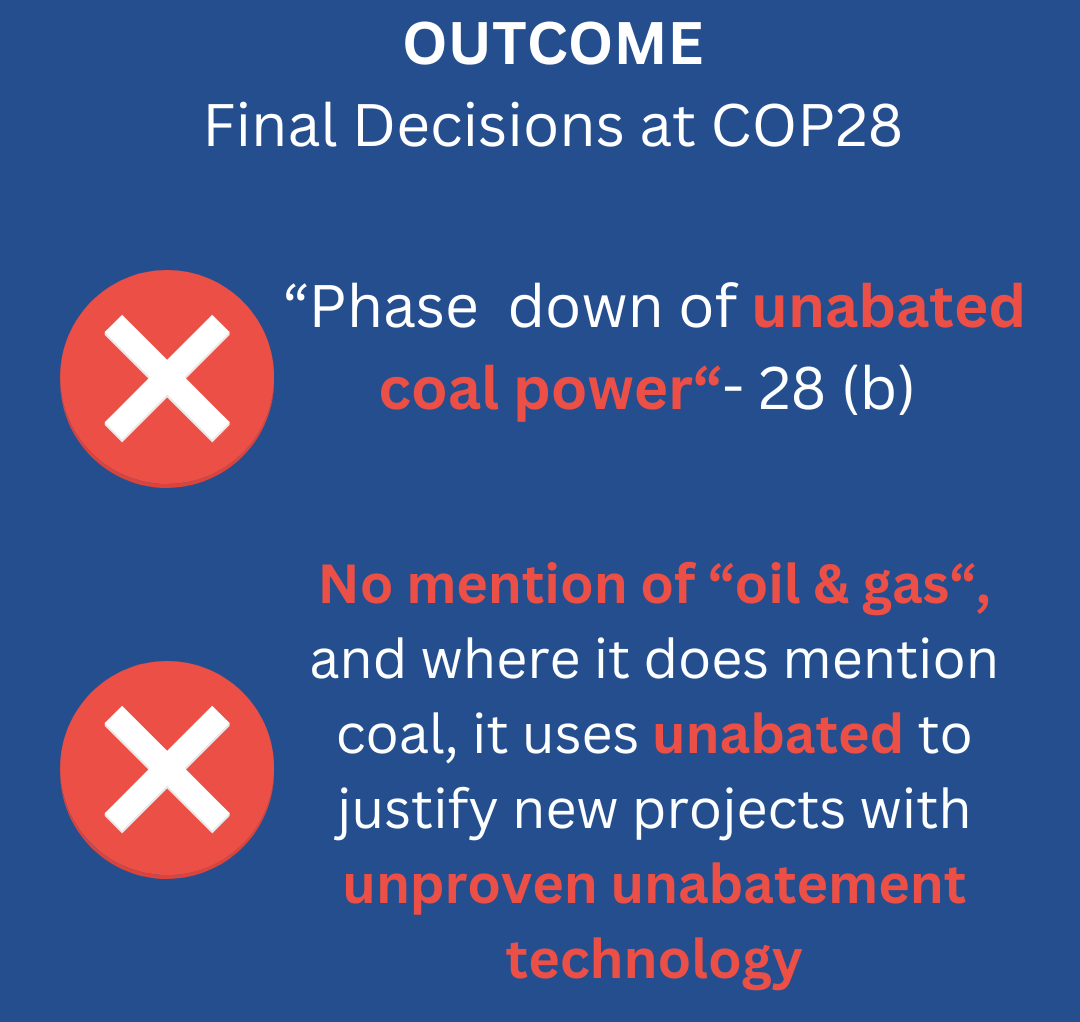
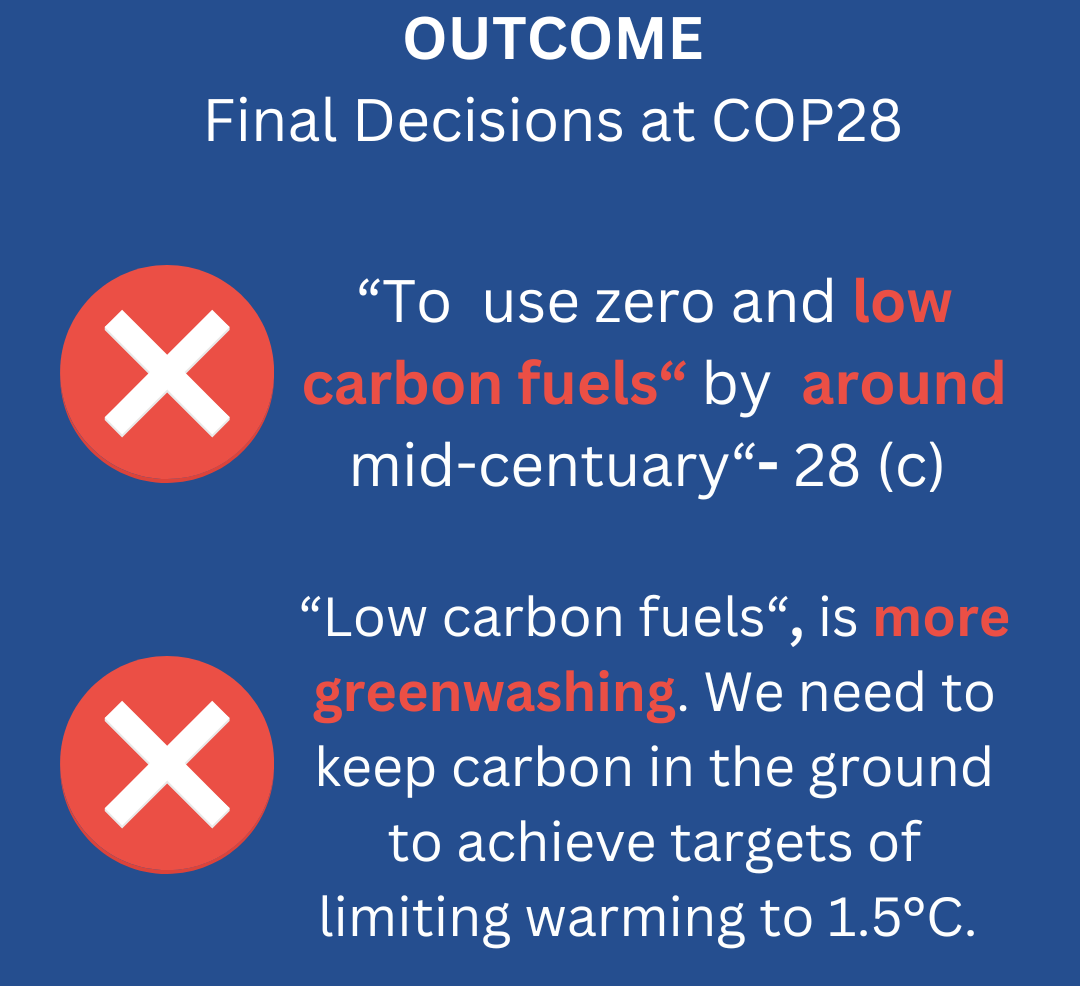
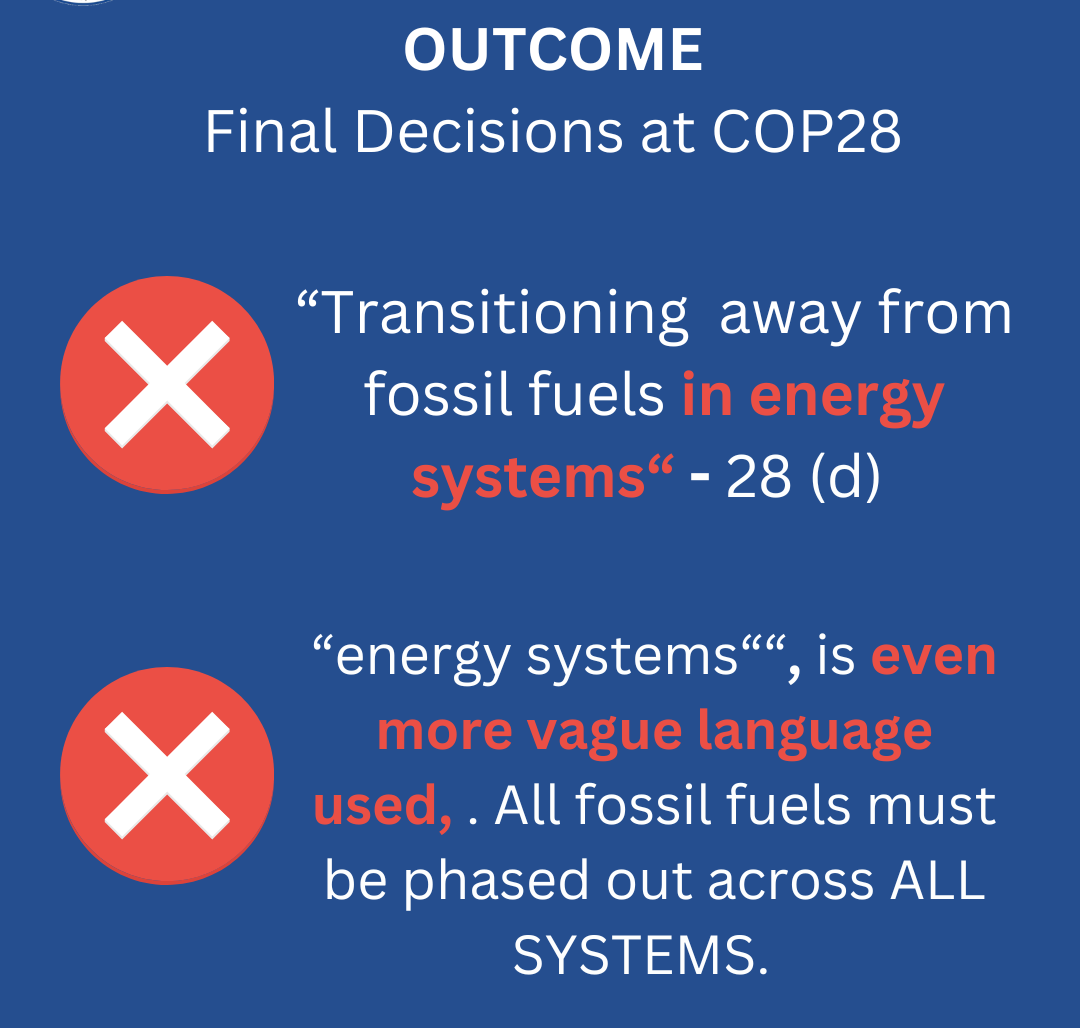
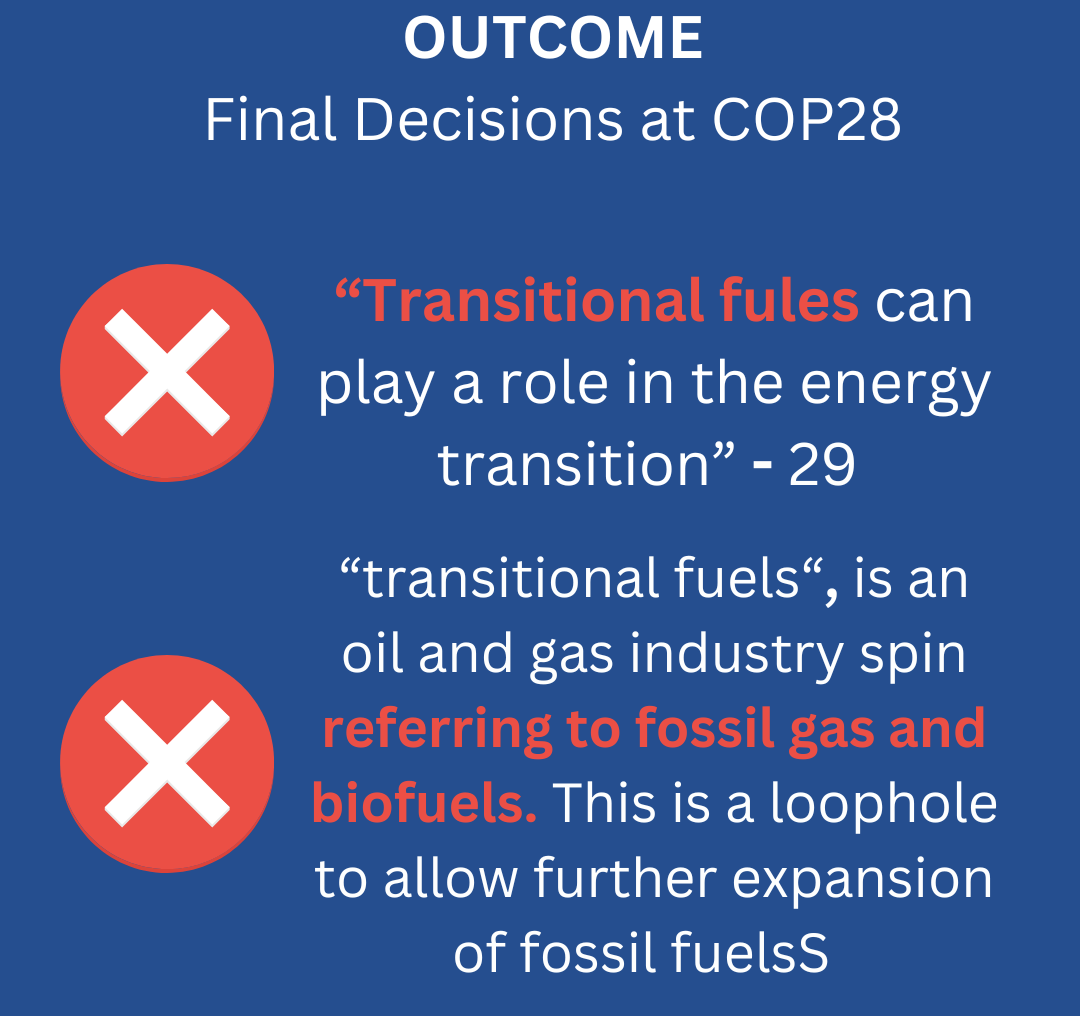
Beyond the UNFCCC’s Consensus Process
The UNFCCC's consensus-based approach alone isn't sufficient, given the number of dissenting voices. A new treaty is necessary to address these challenges. At COP28, a significant group of nations advocated for a just and financed phase-out of fossil fuels.
The Need for an International Fossil Fuel Non-Expansion Treaty
A specific treaty dedicated to this issue could provide the framework needed for forward-thinking countries to advance without the hindrances that slowed progress at COP28. Such a framework would explicitly target the threat posed by fossil fuels and manage an equitable, rapid, and financially supported global phase-out of coal, oil, and gas.
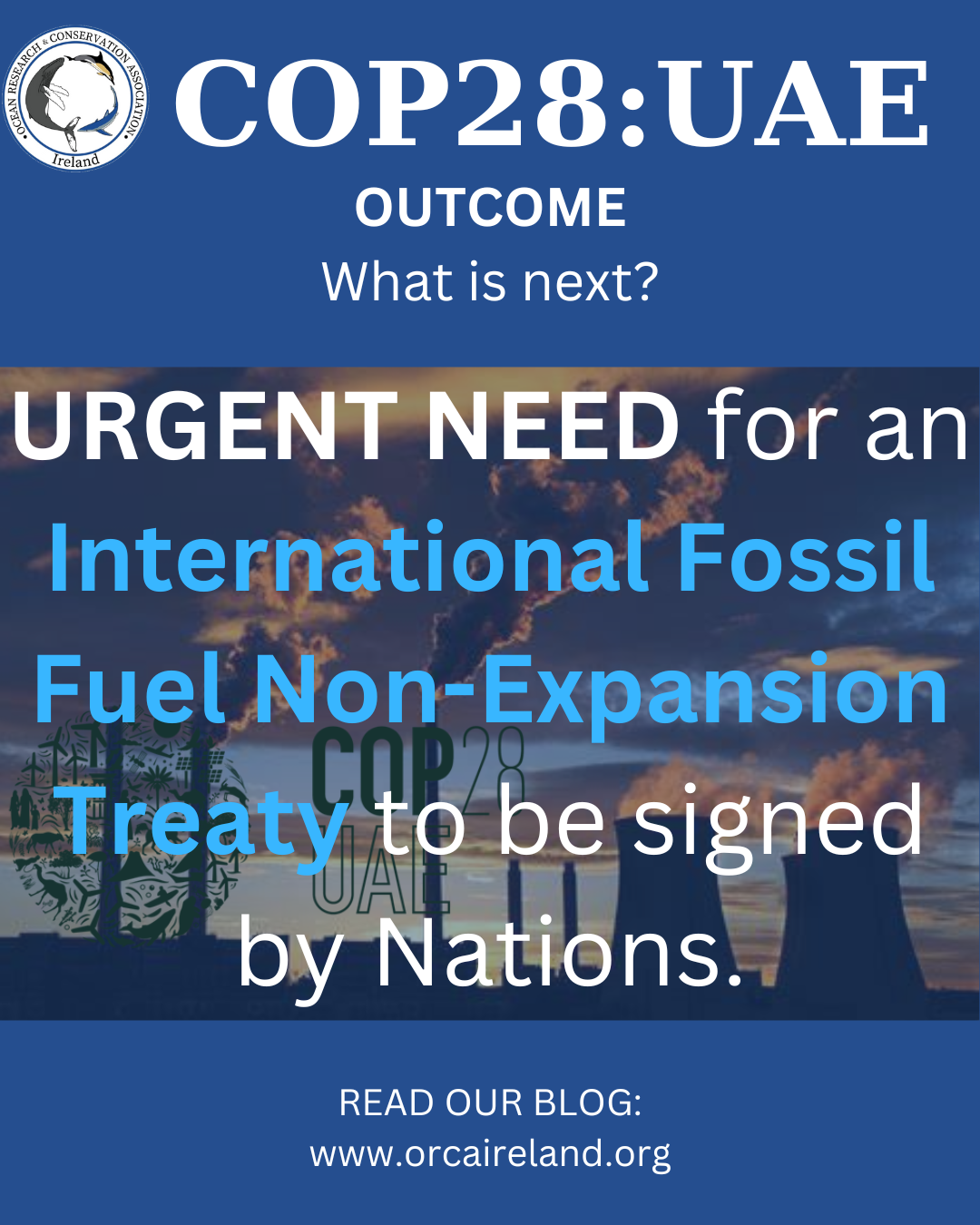
SHARE THIS ARTICLE













